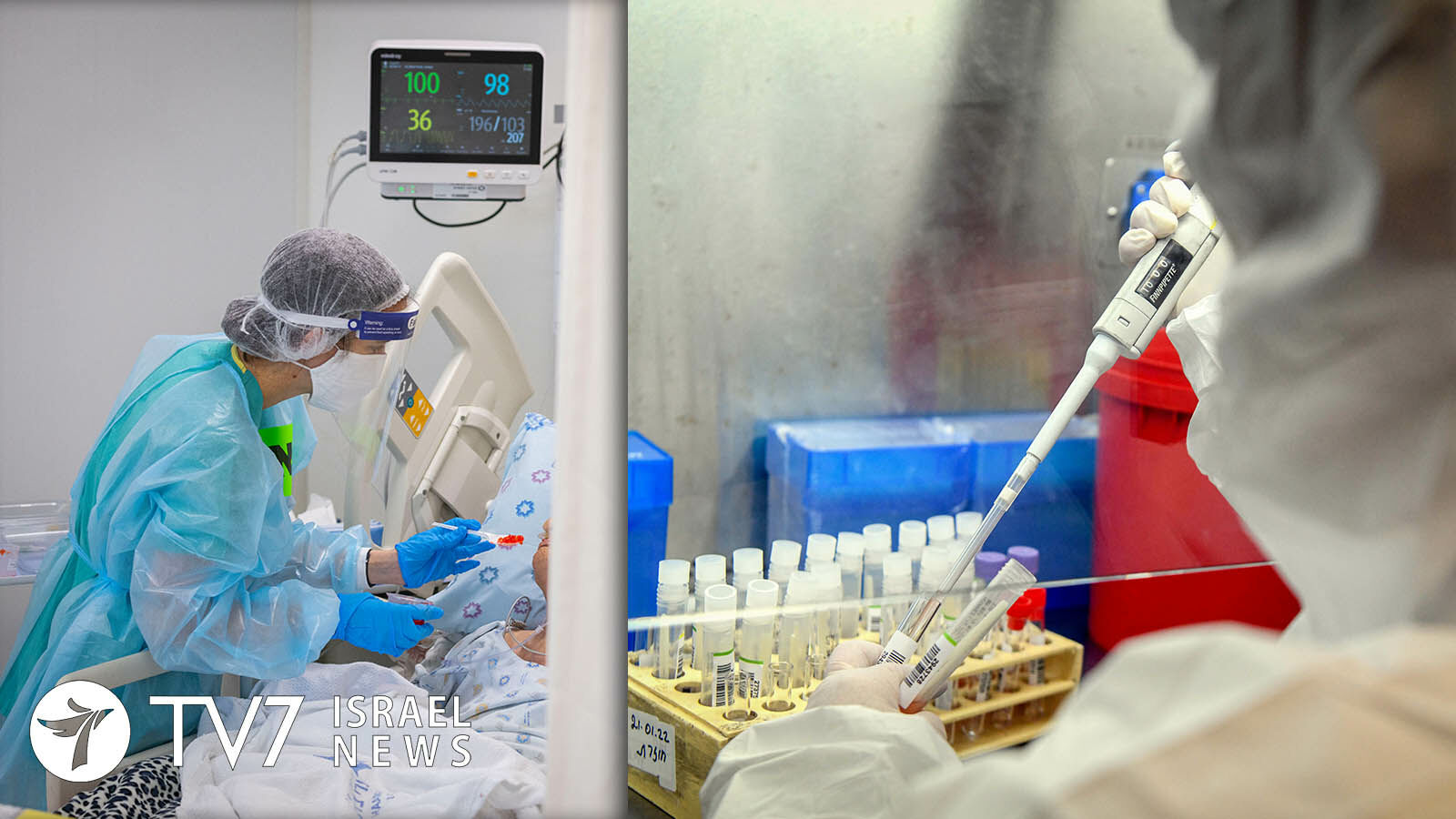Two travelers were diagnosed with the new coronavirus variant in recent days after undergoing PCR testing upon arrival at the Ben Gurion International Airport, although the coronavirus strain is believed to have originated in Israel.
By Erin Viner
The strain is a combination of Omicron’s BA.1 with BA.2 subvariants, according to the Shamir Medical Center where the tests were sequenced.
The Ministry of Health said that the variant “is still unknown around the world.”
“It’s likely” the passengers “were infected before boarding the flight in Israel. The variant could have emerged here,” Health Ministry Director General Nachman Ash said during an interview with the local 103FM radio station, adding, “We don’t know what it means yet.”
The patients’ identities are unknown, but the Head of the national Coronavirus Cabinet Professor Salman Zarka revealed while speaking to Army Radio that they are a couple in their 30s who contracted the virus from their infant son.
Reported symptoms of the novel variant appear light, with patients reporting low fever, headaches and muscle pain. None have required additional medical treatment. The Health Ministry said it will continue to closely monitor the situation and release updates when additional information is available.
According to Zarka, “The phenomenon of combined variants is well known,” and Israel is not yet concerned the new strain will lead to “serious cases.”
Meanwhile, there has been evidence of yet another variant that is a hybrid of Delta and Omicron, said the Kan public television network in a report that has yet to be confirmed by the Health Ministry.
There has been a drop in Omicron infections in Israel over the past week, although the rate of BA.2 cases is rising.
40,096 Israelis are currently infected with the coronavirus, 332 of whom are in serious condition. 10,405 Israelis have succumbed to the disease. There have been 3,737,352 overall registered COVID-19 cases among Israel’s overall population of just over 9.3 million.
Ministry of Health data shows that the highly-contagious Omicron variant peaked toward the end of January, when daily cases reached record highs of some 85,000. Numbers of patients have since steadily declined to around 21,000 cases this week.
Israel has been trying to adopt a “Living with COVID” policy to keep businesses and schools largely open, although some sectors still struggled as employees, customers, students or faculty fell ill or were in quarantine.
The latest developments come amid celebration of the Purim holiday, just ahead of Jewish commemoration of Passover, the Muslim holy month of Ramadan and the Christian observance of Easter. All of the holidays are traditionally marked by large family gatherings, which were forbidden in 2020 when Israel was under nationwide lockdown.
Israeli Prime Minister Naftali Bennett held consultations with Health Minister Nitzan Horowitz yesterday to discuss what his office said is “the increase in COVID-19 infection rates in several locations around the world.” The meeting was also attended by the Health Ministry Director General, Public Health Service Director, national coronavirus project manager, Deputy Director of the National Security Council, GOC Home Front Command, a representative from the Defense Ministry and other professionals.
According to a statement communicated by the Prime Minister’s Foreign Media Advisor, information available at this stage regarding the BA2 corona strain and the combined strain was presented during the meeting, in addition to the global and Israeli COVID-19 infection rates with focal points of the outbreak in China in general and in Hong Kong in particular.
Instructions by the Prime Minister and the Minister of Health following the session include:
* The obligation to wear masks will continue at this stage, and will be re-examined prior to Passover.
* The Magen Avot project to protect the elderly populations in Israel will continue.
* Accelerating and expanding the deployment of air filters (HEPA) in classrooms in the education system.
* Continued public information efforts to encourage the vaccinations among populations that have yet to do so.
* Verification of the stock of vaccines and drugs, in preparation for the possibility of a severe corona strain, if detected.
